10 Ways to Break Through a Weight-Loss Plateau

Imagine this: You’ve been working hard for months to shed some pounds. You’ve been eating more veggies and finding exercises you enjoy, and everything seems to be going great. But then, suddenly, you hit a roadblock. Your weight stays the same for weeks or starts dropping much slower. It’s frustrating, right? That’s what’s known as hitting a weight-loss plateau. Don’t fret, because we’ve rounded up 10 of the best ways to break through a weight-loss plateau.
One of the most annoying things about losing weight is when your progress slows down or stops altogether. You might think you’re eating too much or not moving enough, but that might not be the case. It’s actually normal for weight loss to slow down after a while. The good news is there are ways to break through this plateau and get back on track to reaching your goals.
When you first start trying to lose weight, you often make big changes. Maybe you cut calories or start hitting the gym regularly. At first, the pounds come off quickly because you’re burning more energy than you’re taking in. But then, your body catches on and adjusts. It might slow down your metabolism to conserve energy or become more efficient with the calories it’s getting, making it even harder to lose more weight.
If you find yourself stuck at the same weight despite your efforts, don’t get discouraged. It’s important to understand that this happens to many people. The key is to check in with your habits and make some changes. Try adjusting your diet or mixing up your exercise routine. Above all, remember to be patient with yourself. Weight gain didn’t happen overnight, and losing it won’t, either. In the meantime, here are some tips to help you overcome your weight-loss plateau.
Don’t automatically cut calories.
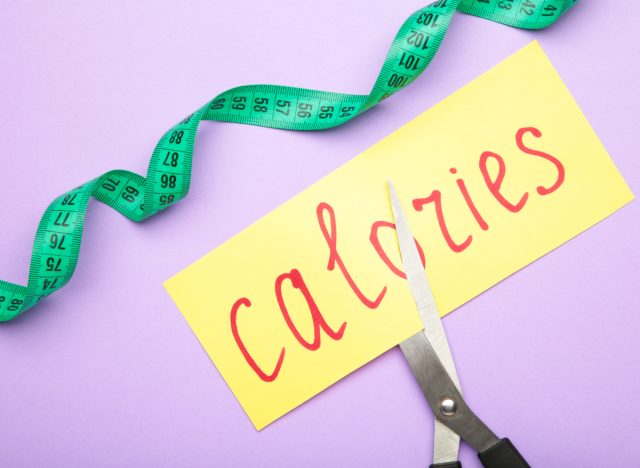
It might seem logical to eat less, but if you drop your calories too low, your body might resist losing more weight. After all, sometimes weight plateaus happen because too few calories are eaten. Instead, take a step back and look at the other lifestyle changes you’ve made along the way and see if there are adjustments you can make there.
Check your protein intake.
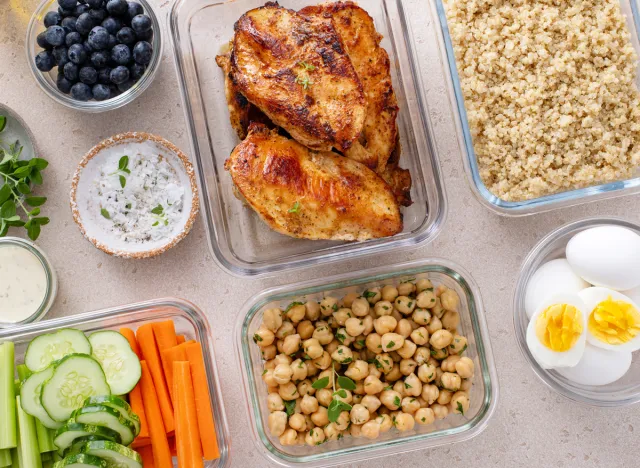
Protein plays a crucial role in weight loss because it helps preserve muscle mass while your body is in a calorie deficit. This is important because when you burn more calories than you consume, your body may also break down muscle for energy. Ensure you’re incorporating protein into each meal and snack, such as having eggs and beans for breakfast and yogurt for snacks.
Switch up your exercise routine.
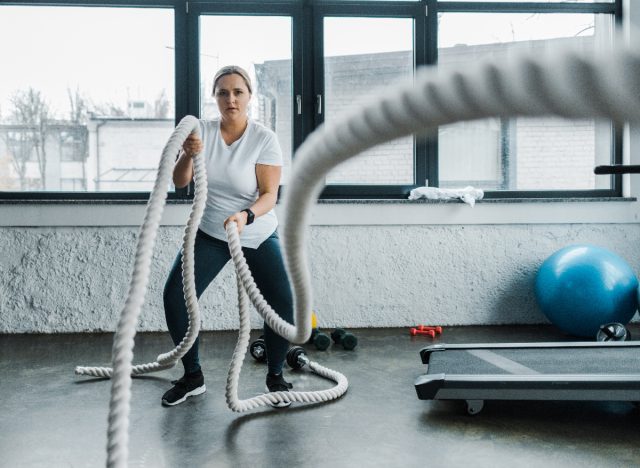
If you’ve hit a plateau, sometimes changing your workout routine can make a big difference. Adding strength training sessions a few times per week can help build muscle, which can boost your metabolism and support weight loss.
Whether it’s trying new exercises, increasing intensity, or simply committing to a consistent workout schedule, finding ways to keep your body challenged is key to breaking through a plateau.
Watch your drink choices.

Many people overlook the calories in their beverages, but they can add up quickly. If you’re struggling with weight loss, take a look at what you’re drinking throughout the day. Beverages like milk, alcohol, and sugary drinks can be calorie-dense. Opt for water as your main hydration source, and be mindful of how other drinks might impact your calorie intake.
Manage stress levels.

Stress can be a major factor in weight-loss plateaus. It can trigger emotional eating and affect your hormone levels, like cortisol, which can influence weight gain. Finding healthy ways to manage stress, such as exercise, meditation, or talking to a friend, can help you stay on track with your weight loss goals. The next time you find yourself reaching for food when stressed, take a moment to consider if you’re truly hungry or if there’s another way to address your stress.
Consider tracking for awareness.
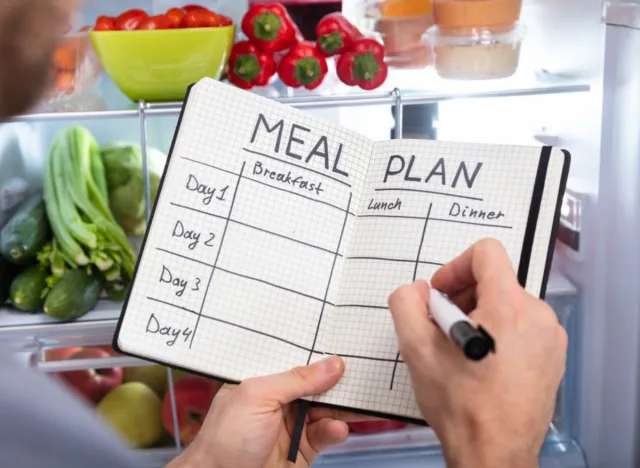
Tracking what you eat for a few days can provide valuable insights into your eating habits. It’s common to underestimate portion sizes or forget about snacks and drinks contributing to your overall calorie intake. Keeping a food diary can help you identify patterns and adjust to align with your weight-loss goals. This awareness can be especially helpful when dining out or during busy days when food choices may be less controlled.
Make your meals more satisfying.
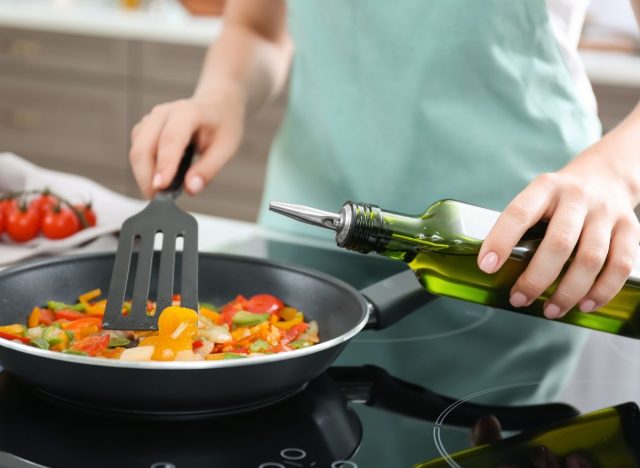
When you’re trying to lose weight, feeling hungry between meals can derail your progress. Focus on including high-fiber foods like vegetables and whole grains in your meals to help you feel full longer. By choosing filling foods, you can reduce the temptation to overeat and support your weight-loss efforts.
Snack smart.
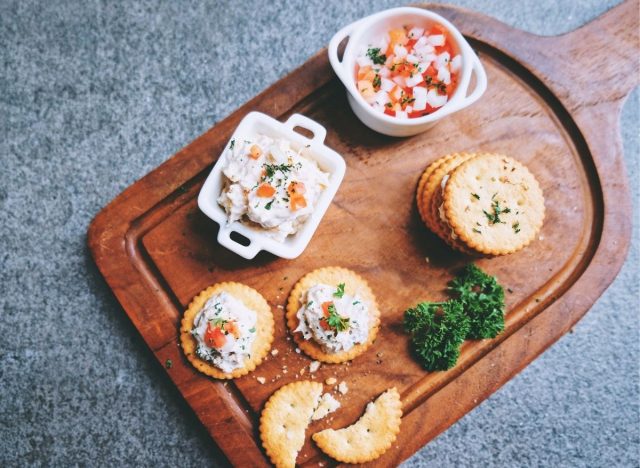
Snacks can be a helpful way to curb hunger between meals, but they should be chosen wisely. Opt for snacks that combine fiber-rich carbohydrates with protein, such as fruit with yogurt or whole-grain crackers with cheese. These balanced snacks can provide sustained energy and help keep cravings at bay.
Practice mindful eating.

Eating with intention can help you make healthier choices and better appreciate your food. By removing distractions like TV or phones during meals, you can focus on how hungry you are or how full you are becoming. Paying attention to the textures and flavors of your food helps the food feel more enjoyable, which may mean stepping away from the table before you’ve finished your plate.
Don’t underestimate the power of walking.

Walking is a simple yet effective way to burn calories and support weight loss. Whether you take a stroll after dinner, walk instead of drive for short trips, or simply increase your daily steps, every bit of activity adds up. Walking not only helps burn calories but also reduces stress and boosts your mood, making it a great option to break through a weight-loss plateau.
- Source: https://www.acsm.org/docs/default-source/files-for-resource-library/protein-intake-for-optimal-muscle-maintenance.pdf
- Source: https://www.ncbi.nlm.nih.gov/pmc/articles/PMC6950543/
- Source: https://www.ncbi.nlm.nih.gov/pmc/articles/PMC9362746/
- Source: https://www.ncbi.nlm.nih.gov/pmc/articles/PMC5319254/









